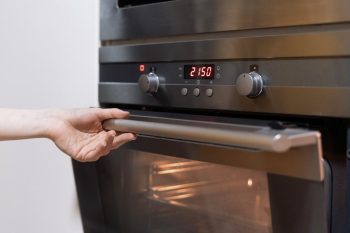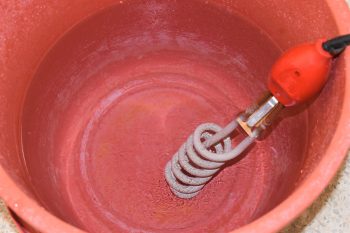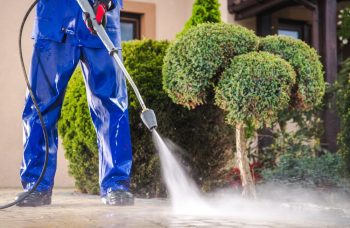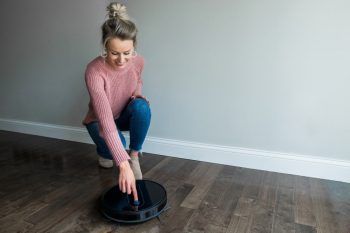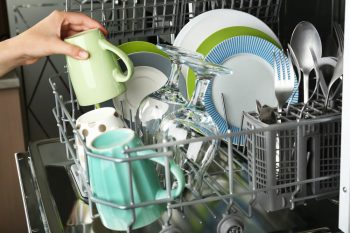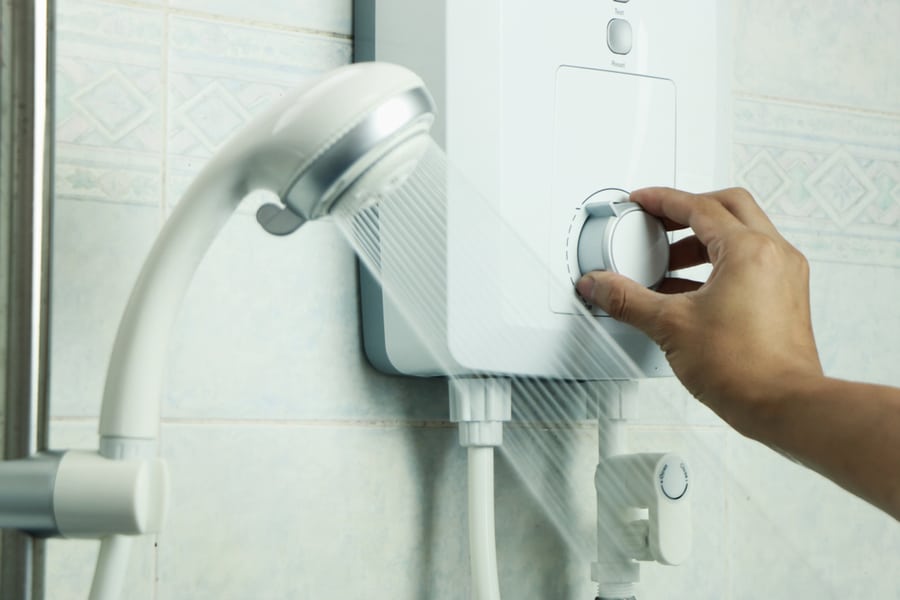
Wondering what is that weird noise coming from your water heater? Well, it is good that you have decided not to ignore it.
Although we might not be able to differentiate between different types of noises, you will be surprised to know that even the slightest difference in sounds is associated with an entirely different cause, like blocked pipes and unbalanced pressure and temperature.
To understand the cause, you should know the affiliated sound types and a quick fix for all water heater noise problems.
Look at the following most common causes of noise production and see which will likely happen in your heater.
- Accumulation of Debris
- Faulty Parts
- Blockage of Water Circulation
- Pressure Imbalance
- Temperature Imbalance
- Abnormal Water Discharge
- Effects of Hard Water
We’ll quickly go through each of the causes that make your water heater noisy. You can then treat the cause for its optimum performance.
7 Common Causes of a Noisy Water Heater
We have briefly touched seven most common causes of noisy heaters. Without further ado, let’s dive into them:
1. Accumulation of Debris
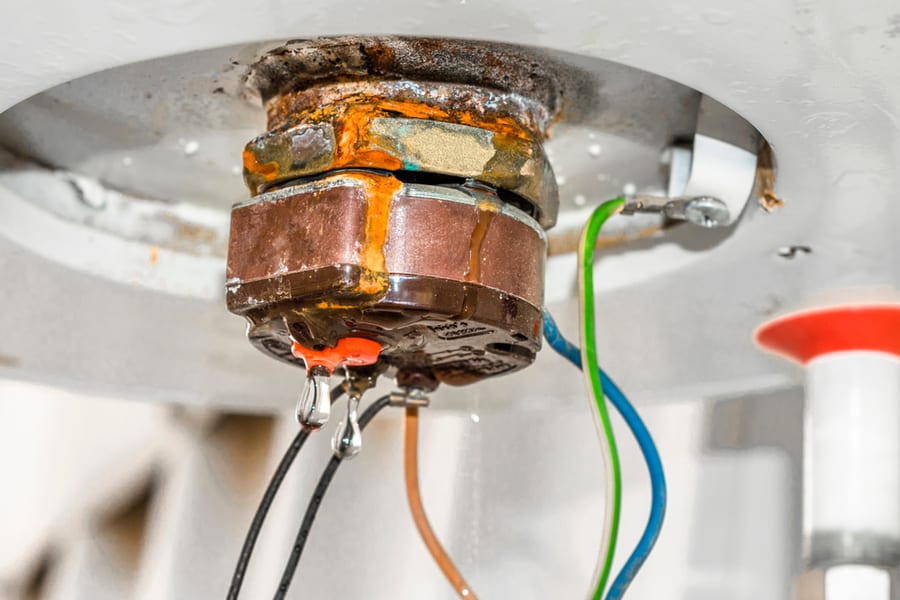
Have you ever noticed a thin coating at the bottom of water containers you use daily? Or the ones you use to boil your water in?
Your water heater also has a container layered with debris, including minerals, salts, and all the other water contaminations. This can accumulate anywhere throughout the water passage slowly but constantly.
Initial sign: This debris’s thickness depends on how often it gets cleaned in a year. If you do not clean it for years, it can eventually block the outflow. Initially, this makes a pop-like consistent sound which indicates that the debris accumulation needs to be checked.
Warning sign: if this pop-up noise changes into echoing, you should know that the issue is serious and needs an immediate checkup.
2. Faulty Parts
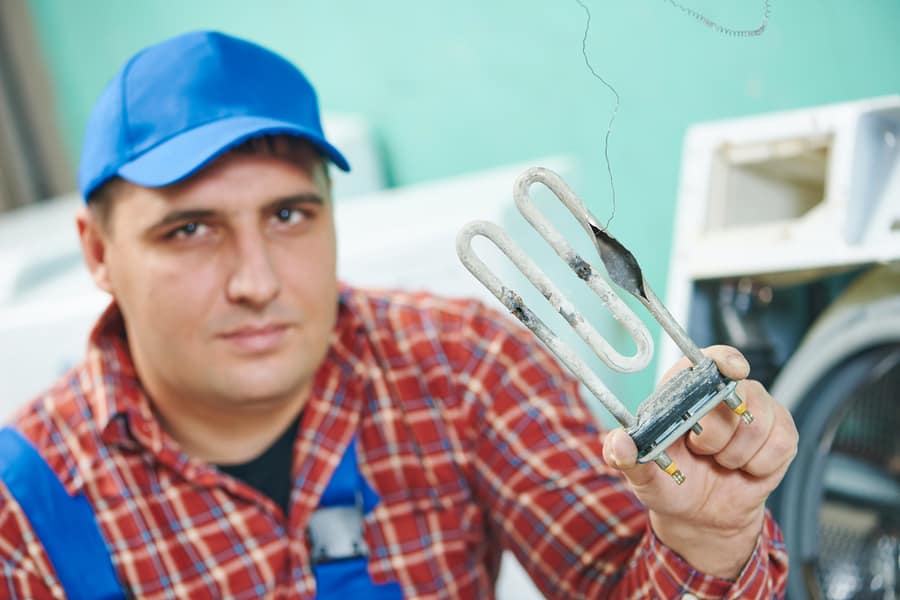
If you notice different sounds coming together or pairing up after intervals, a damaged internal part must be replaced if the heater is old.
If your heater is not too old, you need to get it checked by a mechanic to ensure the damage is not too intense.
Sometimes very small particles get stuck in the vents, fans or pipes and every time the water flows, it makes noise.
3. Blockage of Water Circulation
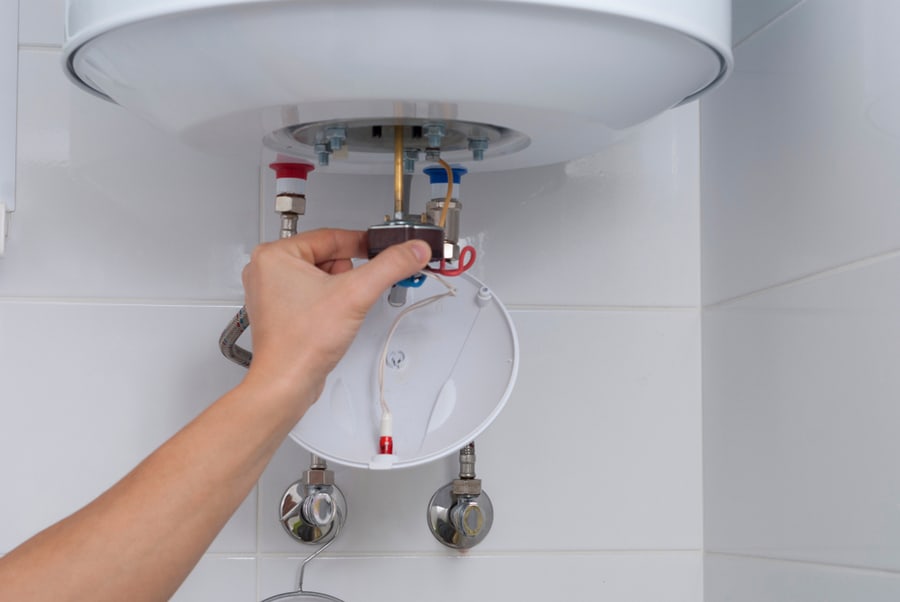
Have you ever heard of a gas pipe leak? Or when your pressure cooker gets steamed up? This buzzing sound is heard if the normal water flow gets blocked. This can be due to multiple reasons.
For instance, if your valves are loose, they will close automatically due to the water flow pressure, or if your heater has not been cleaned in a while, it will collect harmful amounts of dirt and cause blockage.
You can also check your water input because the issue is not always in the heater but in the water supply pipes.
4. Pressure Imbalance
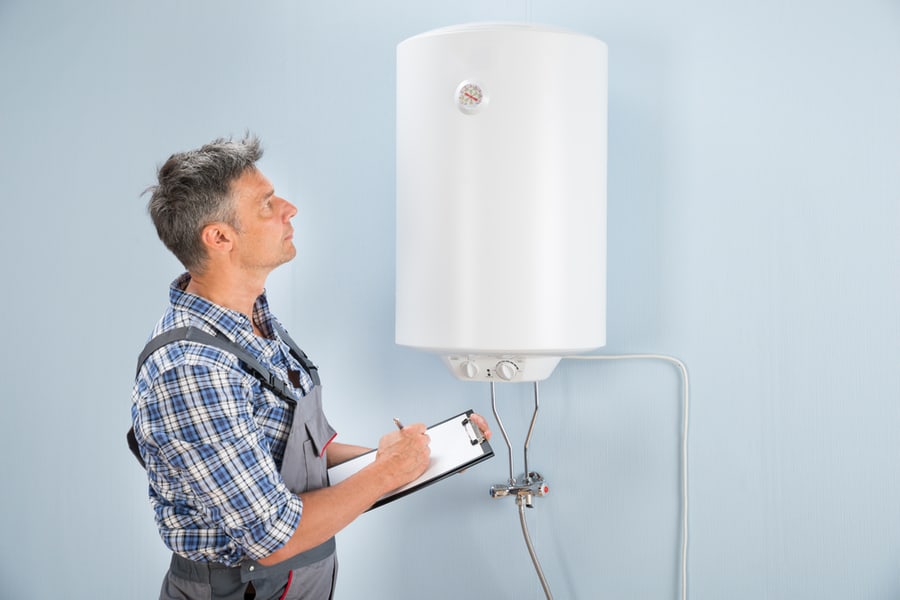
Certain outlets in your heater are made to release the steam buildup.
When these outlets are no more letting the steam out, it causes an increase in pressure inside the heater due to the accumulation of so much trapped heated steam.
This will make a consistent beat of tick tick sound. It can also be like a regular tap tap. Call your company’s service provider for the safe release of this pressure.
You should not try to release this steam alone; it can cause major burns on your arms or even if you wear any clothes.
5. Temperature Imbalance
If you notice the sound of gas leakage but notice no such leakage and there is also no blockage of water flow, then there is a temperate maintenance problem in your heater.
You will also notice that your heater will stop giving hot water suddenly during the shower or any other usage. This is due to an unprofessional installation or any damage to your temperature-adjusting apparatus.
6. Abnormal Water Discharge
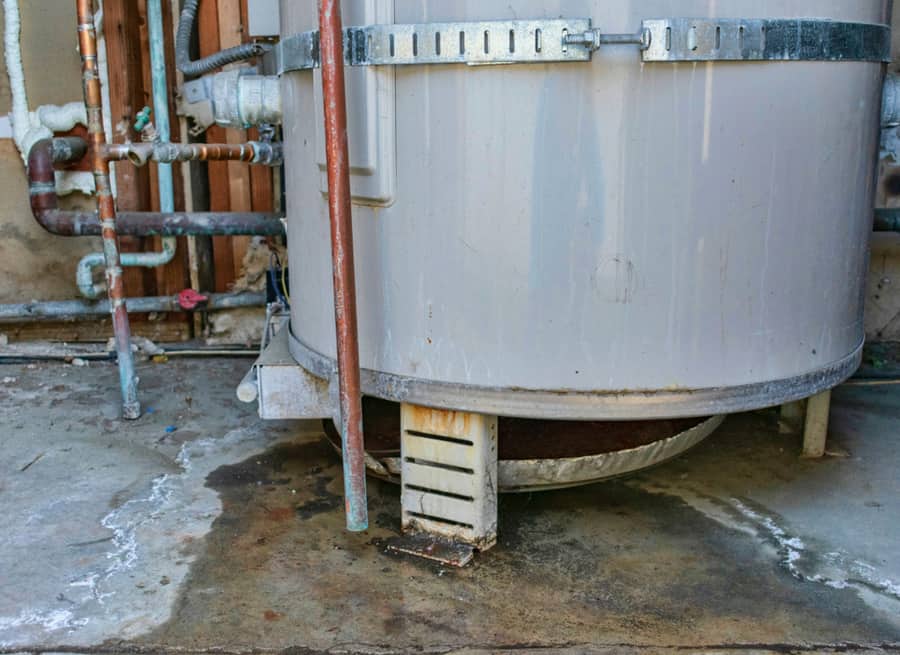
This water leakage can either be outside of the heater or inside. When water vapors collect inside the heater, they drip on the heated areas, making a sizzling sound like when you pour water into a heated pot.
This again changes into vapors as soon as these droplets hit the hot pipes, and the cycle continues making an endless series of sounds.
7. Effects of Hard Water
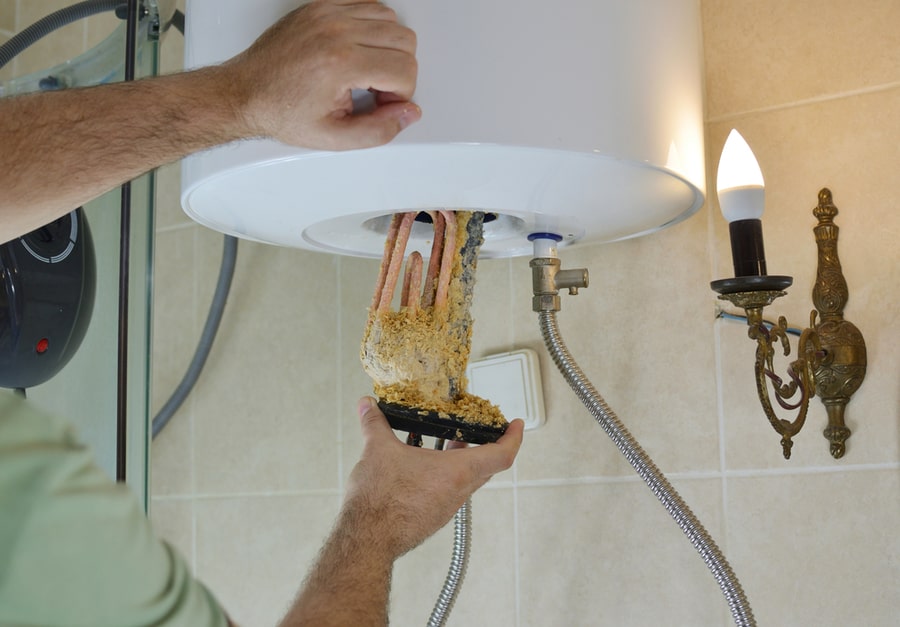
Some areas have hard water running through their pipes; this makes a huge deposit of minerals inside the water tank. It differs from dirt or debris accumulation, and cleaning methods for both issues differ greatly.
Debris can be cleaned simply by water, but this thick deposit can only be cleaned with special chemicals. This deposition of minerals causes loud cracking noise.
You can change your water supply resource or get your water collector cleaned regularly.
How To Fix It
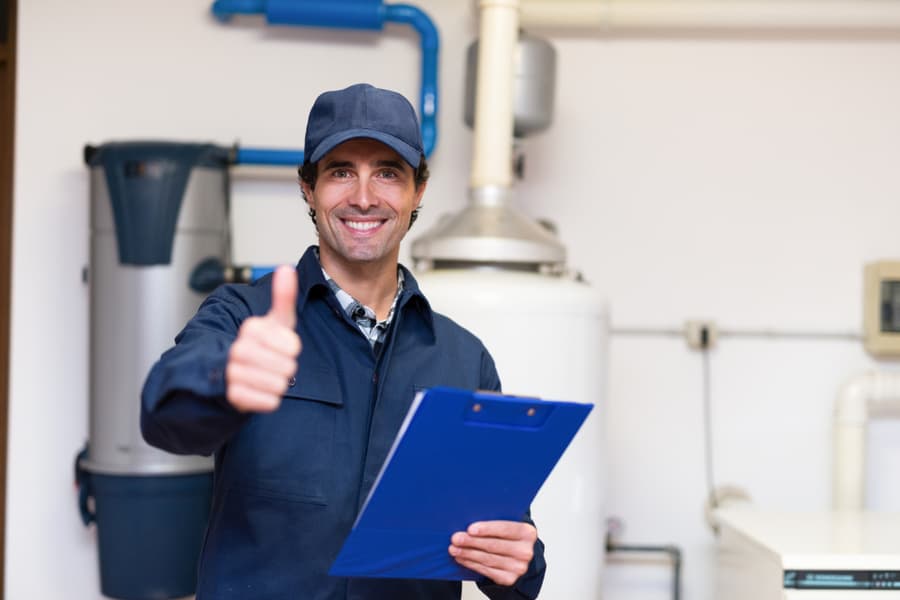
The first thing to do for prevention is to identify which part of the heater is damaged.
Simple cleaning of vents etc., can be done at home by giving it a water wash, but if you need chemicals, do not try this on your own, especially if you do not have any prior experience.
Quick replacement of faulty parts should be done immediately to avoid bursting and other damages. Call your company’s mechanic for regular checkups.
Takeaway
Causes of a noisy water heater can include a small feather tucked in a vent to a serious internal manufacturing issue. Identify the sound your heater is making and know the associated cause.
If you hear a popping sound, then it is some accumulation. If it is sizzling, then wreckage, temperature, and pressure imbalance, cause loud thuds, and if there are mixed sounds, the malfunctioning part needs to be replaced.
Frequently Asked Questions
When Should I Start Worrying About the Noisy Heater?
If you notice any sound other than a slight murmur and swift water-flowing sound (usually heard when you buy a new heater), you need to get your heater checked.
Normal sounds do not come to notice all of a sudden.
How Can I Fix the Noisy Heater by Myself?
If the noise is coming from dust accumulation in the filters, then you can take off the filters and vents and clean it or wash it with water, but if it is an internal issue, then you should not take a risk and call a mechanic to get the part checked or replaced.


